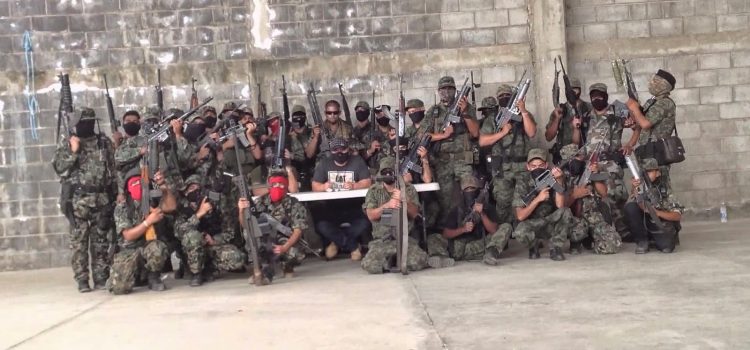
So far, the Maelstrom Rising series has mostly focused on the fact that conventional combat in future war is anything but dead. But there’s an irregular side to it, too, and the future is going to feature as much of the irregular, asymmetric side as the conventional, combined-arms side.
There’s an article over on Borderland Beat about just that side of warfare, a side that is becoming increasingly prevalent in the modern world.
Future conflicts will mostly be waged by drug cartels, mafia groups, gangs, and terrorists. It is time to rethink our rules of engagement.
Wars are on the rebound. There are twice as many civil conflicts today, for example, as there were in 2001. And the number of nonstate armed groups participating in the bloodshed is multiplying. According to the International Committee of the Red Cross (ICRC), roughly half of today’s wars involve between three and nine opposing groups. Just over 20 percent involve more than 10 competing blocs. In a handful, including ongoing conflicts in Libya and Syria, hundreds of armed groups vie for control.
For the most part, these warring factions are themselves highly fragmented, and today’s warriors are just as likely to be affiliated with drug cartels, mafia groups, criminal gangs, militias, and terrorist organizations as with armies or organized rebel factions.
I can’t say that I agree with everything the author writes. Particularly his solutions, which rely on international law to set rules of engagement. While I’ve considered that the legal definition of “war” accepted by the West is insufficient for a long time, the likelihood that international law will catch up (or that anyone involved will pay attention to it) seems slim. Especially as the post-WWII world order continues to fragment.
(In fact, I was considering trying to write a book on “History, Moral Philosophy, and War,” addressing that some time ago. However, I’m not sure it would do very well, given the current state of the non-fiction market.)
This is not a new theme for me. If you’ve read my stuff before, that should be obvious. The deepest I’ve gone into the intersection between organized crime, terrorism, and state actors was The Devil You Don’t Know. But it’s been a common thread through most of my military fiction. I’ve used it in the Brannigan’s Blackhearts series, as well.
And the Maelstrom Rising series will be no different as it continues to unfold. There’s been a lot of big battles and high-tech weapons so far, and there will continue to be. However, as the war drags on, and more and more of that high-tech, very expensive equipment gets destroyed, we’ll see more and more of the irregular, proxy war style coming into play.
There was a time, not long past, when I would have wholeheartedly agreed with the author of the Borderland Beat piece, that future war will be almost entirely fought with irregular proxies. However, recent years, particularly with the wars in Syria and Ukraine, have pointed to a combination of conventional and irregular warfare. The war in Ukraine popularized the term “hybrid warfare.” We’re going to see more of it, especially as Third World countries with conventional militaries completely disintegrate, leaving the equipment in the hands of warlords and militias, and as the international order in the developed world breaks down. Irregular war is cheaper than conventional war, which is why it will always be a tool in the toolbox going forward. But sometimes larger, more coordinated units have their uses, as well.
The future of war is going to be interesting, no doubt about it.
For some additional reading on the subject, I read this book as research for The Devil You Don’t Know:
Convergence: Illicit Networks and National Security in the Age of Globalization
Pingback:Call of Duty Modern Warfare - The Mag Life
if the economy takes a big hit and crime in general rises, and as governments (including the usa) implement more restrictions on self-defense, the citizens caught in the middle, especially in the border areas, are going to need to decide if they are going to disarm or be undercover outlaws in order to maintain some sense of security.
Pingback:The "Fourth Balkan War" and the Real World - American Praetorians
Pingback:Tactical Helmet Truth: the humble Brain Bucket - House Morning Wood